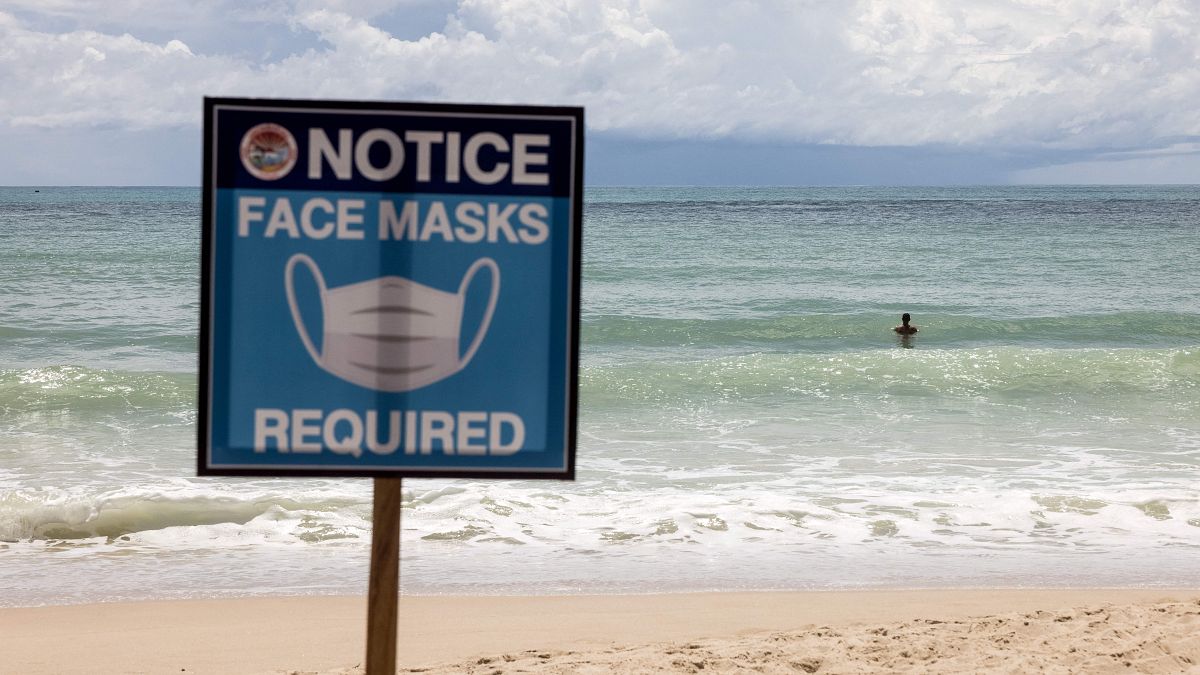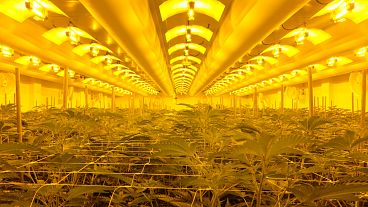Researchers of a new study said tighter-fitting masks and vaccinations are key to preventing COVID.
The virus that causes COVID-19 may be getting better at travelling through the air, a new study suggests.
Researchers found that patients infected with the Alpha variant of the virus - the dominant strain circulating when the study was conducted - put 43 to 100 times more virus into the air than people infected with the original version of coronavirus.
Some of this was due to the fact that patients infected with Alpha had increased amounts of virus in nasal swabs and saliva.
But the amount of virus being exhaled was 18 times more than could be explained by the higher viral loads, according to a report published in the Clinical Infectious Diseases journal.
The researchers also found that loose-fitting face coverings worn by patients with mild COVID-19 can reduce the amount of virus-laden particles in the air around them by about 50 per cent.
"We know that the Delta variant circulating now is even more contagious than the Alpha variant," co-author Don Milton of the University of Maryland School of Public Health said in a statement.
‘Layered approach’ to combat COVID
During the early stages of the pandemic, it was believed COVID-19 was transmitted through coughing and sneezing and wasn’t entirely thought to be an airborne virus.
“We already knew that virus in saliva and nasal swabs [were] increased in Alpha variant infections. Virus[es] from the nose and mouth might be transmitted by sprays of large droplets up close to an infected person. But, our study shows that the virus in exhaled aerosols is increasing even more,” said Jianyu Lai, a doctoral student and one of the study's authors.
To be better protected against COVID-19, the researchers recommended a “layered approach,” which include tight-fitting masks, more ventilation, vaccinations, increased filtration and UV air sanitation.
"Our research indicates that the variants just keep getting better at travelling through the air, so we must provide better ventilation and wear tight-fitting masks, in addition to vaccination, to help stop the spread of the virus," Milton said.



